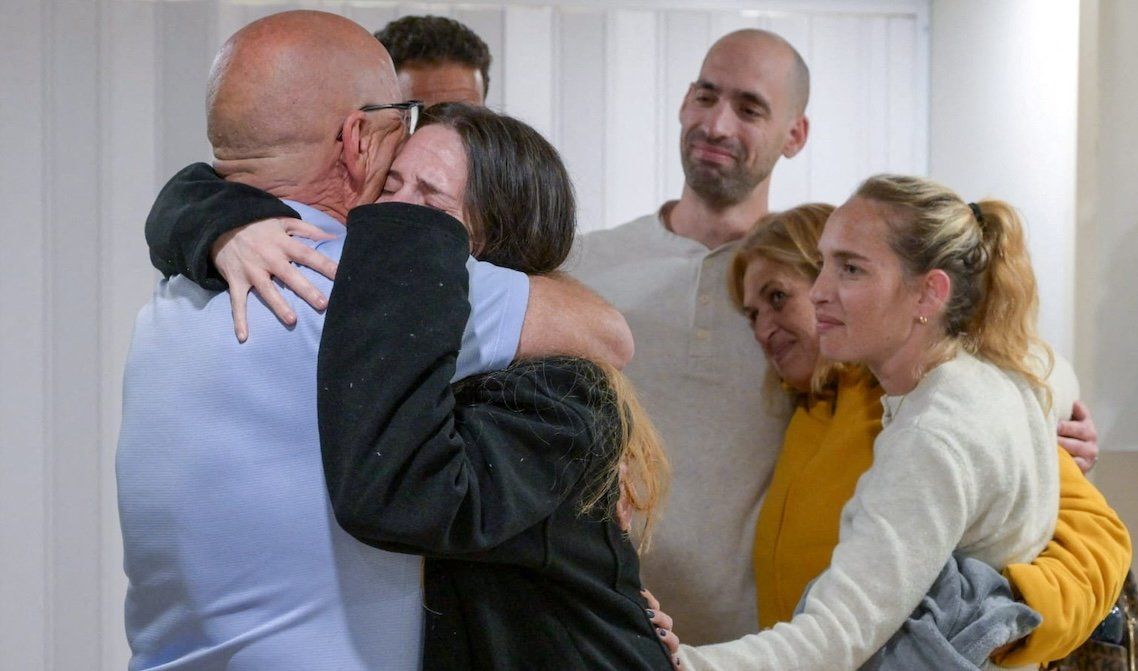Following last-minute disagreements over Israeli troop withdrawals and the identities of the hostages to be released, the Gaza ceasefire deal between Hamas and Israel went into effect on Sunday.
So far, three Israeli hostages — Romi Gonen, Emily Damari, and Doron Steinbrecher — have been reunited with their families, ending 471 days in captivity following the Oct. 7, 2023, attacks by Hamas. They were the first of the 33 hostages set to be released under the deal — and Israel has agreed to release 1,900 Palestinians from Israeli jails. As of early Monday local time, 90 Palestinian prisoners had already been freed.
Domestic political costs: On Sunday, Far-right National Security Minister Itamar Ben-Gvirresigned from Prime Minister Benjamin Netanyahu’s Cabinet to protest the ceasefire. He was joined by two other ministers from the far-right Jewish Power party. This leaves Netanyahu with only a slim governing majority in the Knesset, Israel’s parliament. Further defection could lead to the government's collapse.
Will the deal hold up? For the first phase, lasting 42 days, the incentives seem well enough aligned to keep either side from breaching the peace. Hamas needs time to reorganize and rearm, which it can achieve by releasing the 33 hostages it has promised throughout the first phase. Netanyahu, for his part, wants to deliver those hostages for voters — but after that phase is over, prospects dim.
